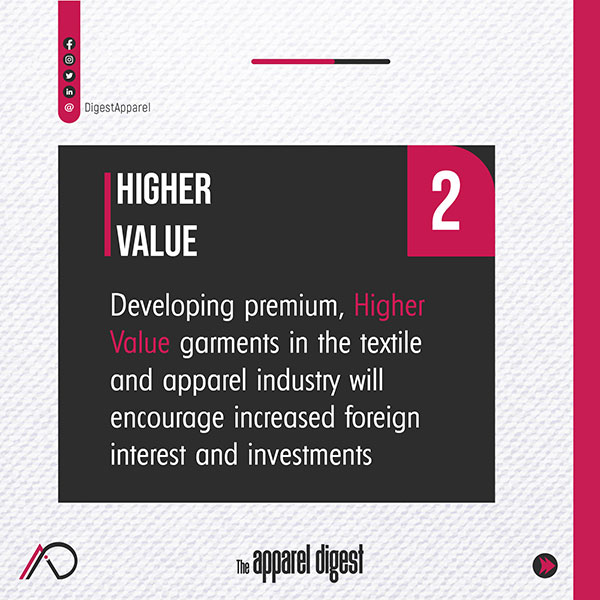In recent times, denim and its diverse products have become the flagship and most talked about items of textile exporters in Bangladesh. Despite recent obstacles, the country has managed to maintain its position as a top supplier of denim products to the US and EU markets; around 27% and 22% of denim market respectively. However, Bangladeshi denim manufacturers have scope to increase the quality as well as the value of the product by using advanced technology.
Due to the local backward linkage and domestic washing facility, the denim jeans of Bangladesh have reached the top level of the international market. Since it is not possible to get denim elsewhere at such attractive prices and in such a short period of time, if the economic conditions improve, buyers will bring more orders to Bangladesh. People involved in the sector and economists predict that Bangladesh will remain the preferred sourcing destination for denim products.
For the excellence of denim products and to meet the growing global demand, manufacturers need to strengthen backward linkages more in the coming days. Denim products can be versatile through more trend analysis, research and continuous development of production processes and cost saving methods, etc.

There are some challenges for denim manufacturers in our country, such as staying in traditional mindset, not investing in modern technology of denim production, less research and innovation in products, less focus on waste management and efficiency and lack of focus on product development and promotional strategies etc.
The demand for denim remains almost the same throughout the year which is not affected by seasons or trends. Top brands like H&M, C&A, JC Penney, Tesco, Zara, Lee & Fung, K-Mart, Takko, G-Star, Inditex, Bestseller (Only & Sons, Only, Jack & Jones) etc. currently source their denim from Bangladesh. However, the terms of the brands are quite complex regarding product style, wash and chemical usage.
But now country’s manufacturers understands brand preferences and fashion aesthetics and are able to produce denim products as per customer demand. However, most of our denim manufacturers produce low to medium quality jeans. While denim exporters have opportunities to take product value to new heights through quality washes and other value addition, most exporters are yet to capitalize these opportunities.
Envoy Textiles Ltd., the world’s first LEED Platinum certified denim producer, has signed an agreement with the Spanish company Xinologia SL, a pioneer in sustainable eco-friendly textile technology, to set up a state-of-the-art eco-lab. The objective of the agreement is to set a global example of sustainable and innovative management by transforming the denim industry through joint ventures.
The journey of exporting quality denim to Bangladesh started by Pacific Jeans, an industrial enterprise of Chittagong EPZ. As a denim manufacturer, Pacific Jeans Limited is using the latest technology in the denim industry. During 1984, there was no washing plant in the country then. Washing had to be done in Italy. A year later they set up a washing plant in the country with the help of an Italian buyer.
In 1998, Sasha Denim established a specialized factory for denim using the technology of the Swiss-German company Benninger. In 2008, Envoy Textiles was the first in Bangladesh to start commercial production using rope dyed technology. Genesis Denim has been working with Dutch fashion brand G-Star Raw as the sole Bangladeshi denim exporter for the past 10 years. G-Star collects about 1 million jeans worth 20 million dollars from Bangladesh every year.
According to garment industry owners, the use of new technologies reduce the production cost and buyers also ready to pay more for high-end denim. For example, G Star pays up to $35 for a pair of denim pants, while low-quality denim exporters get an average of just $6.
Hence, there is an opportunity for denim exporters to take the product value to new heights through modern technology and innovative denim production that will further accentuate the ‘Made in Bangladesh’ tag.

